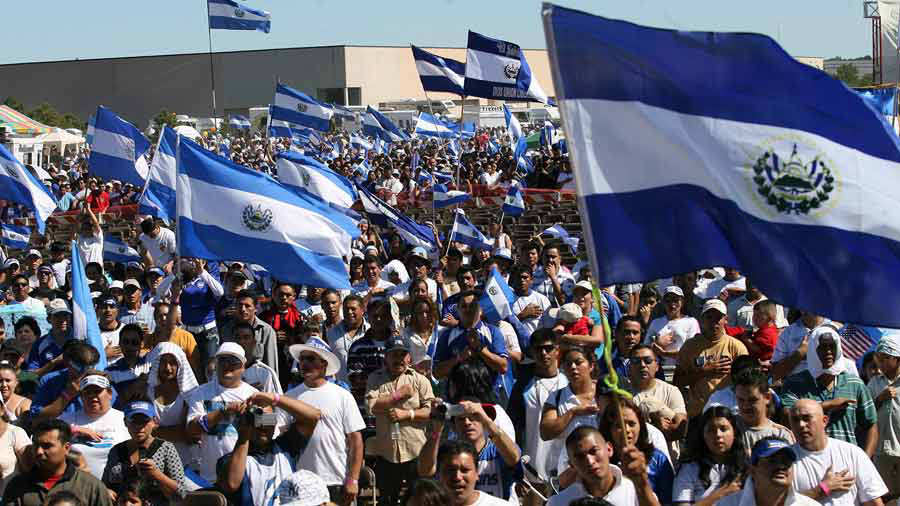
The Presidency says it is “unconstitutional” because the Assembly’s demands to demonstrate their roots in El Salvador are “very restrictive”.
President Nayib Bukele claimed that the decree endorsed by the Assembly For Salvadorans residing abroad to run as candidates in popular elections is “unconstitutional” in terms of the criteria established to demonstrate their roots in the place they wish to represent in the election.
“Such criteria are exclusive to Salvadorans living abroad who fail to verify any of these criteria, when in reality none of these criteria refers to essential aspects for the implementation of that decree,” said Bukele.
In the legislative act, the parliamentarians made different demands on Salvadorans living abroad who wish to run for public office, such as mayors, deputies or president of the republic.
It may interest you: Voting abroad in 2021 could cost up to $ 40 million
In addition to everything the Supreme Election Tribunal asks of interested parties, for nationals living outside the country, it is added to demonstrate ‘that their father, mother, spouse or minor children live in the municipality and are dependent on the applicant, copy of the unique identity documents of one of the first three, or copy of the birth certificates of one of their children ”.
You must also prove that you have assets in that municipality, by attaching a certificate issued by the National Registry Center or a certified photocopy of the respective public deed testimony, or the solvency of the property’s payment of tax and municipal rates property registered in your name, issued, inter alia, in the year in which you request the registration of your candidacy.
This happened because the Assembly was awaiting a resolution from the Constitutional Chamber ordering it to pass legislation to allow Salvadorans living abroad to run as candidates in elections.
It may interest you: Residents abroad can be candidates for positions elected by the population in 2024
On December 23, 2016, the Constitutional Court ruled that the vote of fellow countrymen living abroad who participate as candidates in electoral processes is meritorious, so it was necessary to change the current regulations to allow the exercise of the passive right to vote.
Bukele mentions that the Chamber’s judgment on this issue explains that the requirements for nationals to register as candidates’ must be reasonable given their particular circumstance that places them on another plane with Salvadorans living in the country , but on the other hand, that they do not unnecessarily restrict the exercise of that right ”.
ARENA deputy, Mauricio Ernesto Vargas, explained that the government “is not interested in arraigo. For a single and simple reason, namely electoral, they can move from the outside to other specific municipalities that can support a certain number of voters, because they have to show them roots ”.
In this regard, the Presidency states in its veto that “there are groups of Salvadorans abroad who will not meet these criteria, either because they have emigrated with their entire family group or were born abroad.”
While, for Acción Ciudadana’s Executive Director, Eduardo Escobar, President Bukele should not have vetoed it because it was “unconstitutional”. Escobar analyzes it as a disagreement between the executive branch and the Assembly that should have resulted in a right of veto due to “inconvenience.”
“ This could lead us to what the Chamber has ordered the President (Bukele) not to arbitrarily and irresponsibly use the veto as unconstitutional, he is doing it to stop the legislative process, if he had refused it out of discomfort, would the Assembly will surpass it for it to come into effect, ”said Escobar.
It may interest you: The government and the assembly leave the mood abroad in the dark
However, it somehow shares Bukele’s claims regarding the “restrictive” form of some of the criteria the Assembly requires for those running for popular elections.
“In what the Presidency is right is that the legislature has been very restrictive in verifying roots, in cases of countries that allow candidatures from abroad, present them as a form of roots that have lived in a particular district and proving this, whether last residence in that district, be it a birth or residence, is another way to prove roots, there is a reason in the executive branch to point out that these forms are very restrictive are, ”noted Escobar.
But he warns that “that does not give him reason to make the veto unconstitutional.”
Bukele argues that there is also inequality in the legislative act because it affects the economic capacity of the person interested in running, as he wants to demonstrate that he has properties in the constituency he wants to represent.
In this regard, Escobar points out that these are not necessarily large properties or real estate.
“ Being rooted through a property or society does not link the right to vote with economic capacity as the president falsely does because I can have a house of little value and thus I verify my roots, it was ultimately a humble home and I lived there for a while, it is not a question of economic standing, ”explained Escobar.